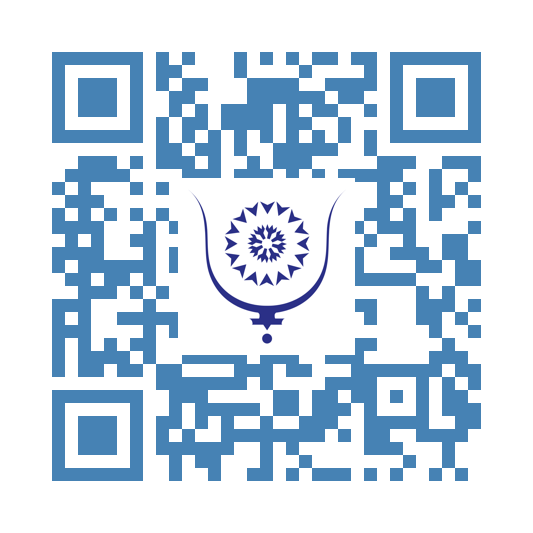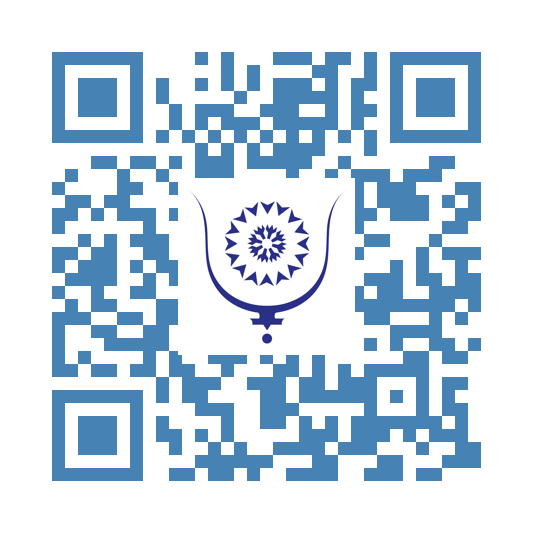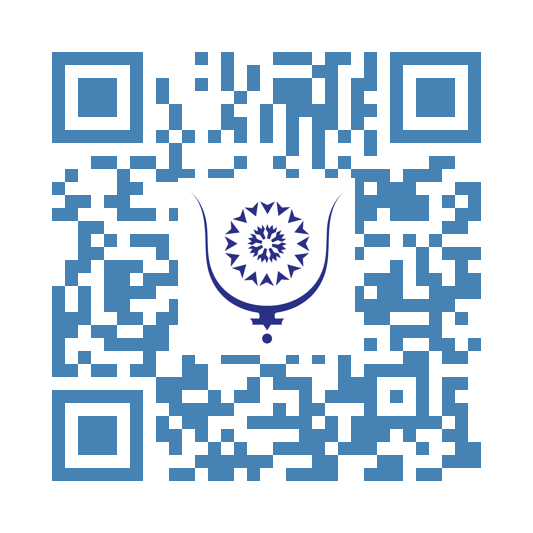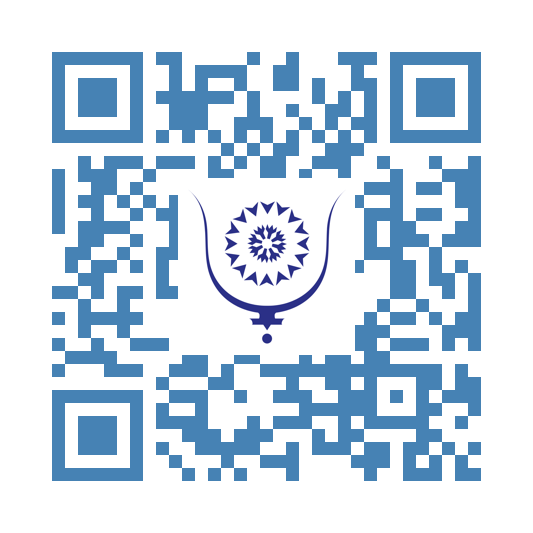Closing a Year, Opening Paths ...
86
Some endings mean more than just the conclusion of an academic calendar. The final session with my Royal Army students young women I’ve guided through two intense years will remain etched in my memory as a suspended moment, full of emotion, meaningful silences, and eyes that said everything.
They are now being deployed across the Kingdom. Some will find themselves in remote units, far from one another, but I know that an invisible, unbreakable bond will continue to connect us.
These two years weren’t easy. The demands of military training, the discipline of the institution, the academic expectations... But through it all, I made a point of keeping something alive; their humanity. Alongside knowledge, structure, and rigor, I wanted them to preserve and protect their capacity for empathy, presence, and sensitivity.
On the last day, they briefly broke with military protocol. In the middle of their march, they stopped. A rare gesture. Almost forbidden. But deeply sincere. They wanted to say goodbye. To show me, in their own way, that something had mattered in our shared journey.
I know they wanted to hug me. And even though they didn’t, I am certain they will now know how to offer those “hugs” differently through kind words, quiet support, and a respectful gaze to anyone in need.
As I left the center, I realized something essential; to teach is often to plant a seed in soil we may never see again. But we do it with the faith that it will grow.
See you next year with new students, new souls to guide.
Share:
Closing a Year, Opening Paths ...
copy:
https://bluwr.com/p/205616848
“Sport for All”: A Shared Space for Humanity
87
During the training I recently led for sports coordinators and facilitators, my goal wasn’t simply to transfer knowledge. I aimed for something deeper: to inspire. To encourage these men and women to wear different hats not just as instructors, but as educators, mediators, trusted figures… and most of all, as conveyors of meaning.
The concept of “sport for all” goes far beyond facilities and access. It is, first and foremost, a human project. At its core lie two essential foundations:
- self-acceptance,
- acceptance of others.
From this dual acceptance arises the possibility of truly inclusive spaces, where everyone feels legitimate to participate, to grow, and to belong.
Throughout the training, I saw something rare in the eyes of the participants; a genuine interest, a hunger for understanding. They weren’t just passively absorbing models, tools, or theories. They wanted to go deeper. They wanted each concept to connect with the complex human realities they encounter every day in their communities and sport programs.
This experience reminded me once again that sport reflects the human condition. It can exclude or unite. It can reinforce inequality or break it down. It can become a space of judgment or a space for healing and resilience.
The individuals we train today will shape what "sport for all" becomes tomorrow.
To capture the spirit of this training, I’m sharing below a short recap video that reflects both the energy and the shared humanity we experienced.
Share:
“Sport for All”: A Shared Space for Humanity
copy:
https://bluwr.com/p/205611333
Le ciel et la lune
259
SOUVENT JE SCRUTE LE CIEL
ET CE DEPUIS MON JEUNE AGE
JE CONTEMPLE LA LUNE
JE VOIS SI ELLE SEMI OU PLEINE
JE COMPTE LES ÉTOILES
JE CHERCHE CELLE DU NORD
JE DEVINE MARS
JE CHERCHE JUPITER
JE SURVEILLE LES ÉTOILES FILANTES
JE RECHERCHE LES OVNIS
ET AUTRES EXTRA TERRESTRES
JE REFAIS LE COMPTE DES ÉTOILES
JE RECHERCHE D'AUTRES LUNES
JE PASSE DES HEURES COMME CA A COMPTER ET RECOMPTER
A VÉRIFIER LE NOMBRE D’ÉTOILES
ET FINALEMENT JE REPLONGE DANS LA RÉALITÉ
ET LE QUOTIDIEN
LE TRAIN TRAIN
ET QUAND LA NUIT REVIENDRA
JE REGARDE MON CIEL DE NOUVEAU
JE COMPTE ET RECOMPTE LES ÉTOILES
JE SCRUTE LA LUNE
JE LA DÉVISAGE
JE LA REGARDE EN FACE
BIEN EN FACE
ELLE ROUGIT
JE ROUGIS
ELLE S’ÉCLIPSE
JE SUIS SES TRACES
ELLE SE COUCHE
JE LA LAISSE ROUPILLER
JE ME LÈVE ALORS
ET JE SCRUTE LE CIEL BLEU
JE DÉTESTE LE SOLEIL
QUI ÉBLOUIE
JE METS DES LUNETTES
POINT D’ÉTOILES
POINT DE LUNE
SOUDAIN LE SOLEIL EST CHASSE
SES RAYONS AUSSI
SON ÉBLOUISSEMENT DISPARAIT
ET LA LUNE SE LÈVE ET SE RELÈVE
MAJESTUEUSE
COMME D'HABITUDE
ET EN DOUCEUR
ELLE ENVOIE SES DOUX RAYONS
POINT D’ÉBLOUISSEMENT
ET SOUS SON CLAIR
VOYONS LE CLAIR DE LUNE
JE SCRUTE LE CIEL
A LA RECHERCHE DE JUPITER MARS ET AUTRE NEPTUNE
SANS LASSITUDE NI AMERTUME
JE LA DÉVISAGE ENCORE ET ENCORE SANS REPIS
JE LA FIXE ELLE ROUGIT
JE ROUGIS
JE COMPTE LES ÉTOILES
JE COMPTE ET RECOMPTE
ET JE VOIS SI LE COMPTE Y EST
LA LUNE SE CACHE SOUS UN VOILE
ENFIN UN NUAGE
MAIS ELLE NE TARDE PAS A REPARAITRE
POUR SE CACHER DE NOUVEAU
JE LA FIXE ET REFIXE AVEC MON REGARD PATHÉTIQUE
ELLE ROUGIT ET VIRE AU JAUNE SA COULEUR MAGNIFIQUE
ET TOUTES LES AUTRES ÉTOILES EN FONT DE MÊME
Dr Bouchareb Fouad
Tous les droits sont protégés
Share:
Le ciel et la lune
copy:
https://bluwr.com/p/204945548
John Bolton and His Controversial Op-Ed Against Morocco: Hostility with Troubled Roots...
630
John Bolton, former U.S. National Security Advisor under Donald Trump, has just published an op-ed in the Washington Times, notably favorable to the Polisario thesis and thus to the Algerian position. The text recycles arguments Bolton has already put forward in the past. He notably defends the outdated idea of a self-determination referendum and accuses Morocco of obstructing the implementation of UN resolutions. It should be recalled once again that the referendum proposal, which Morocco had put forward in Nairobi, has been obsolete and abandoned by the Security Council since 2007; as for accusing Morocco of hindering the process, this is simply false in light of the UN resolutions over the past 20 years.
Bolton lies, and he knows it. He is accustomed to it.
How can one not think that this is clearly an attempt by this forgotten figure of history to regain relevance, a will to manipulate public opinion, but above all an intention to harm by pleasing the enemies of the Kingdom.
This position strangely fits, without surprising, into the continuity of the official rhetoric of the Algerian military junta, the main supporter of the Polisario. It is a blatant alignment and rapprochement that raises questions about Bolton’s integrity. Let us just recall that Bolton was abruptly dismissed by Donald Trump in 2019, officially for strategic disagreements, but according to some observers, also due to questionable connections.
Regarding the matter concerning the Kingdom, Bolton regularly frequents Algiers and collaborates with well-paid Algerian lobbyists such as David Keene, former NRA president, engaged in defending the Algerian cause in the United States. This closeness fuels suspicions of a relay role for Algerian interests, aiming to influence American policy.
Nothing to be proud of for the jubilant military junta. It is used to contradiction and blunt communication turning the slightest detail into a victory. Bolton no longer counts and has no impact. In his rhetoric, Algiers pretends to ignore that the same Bolton supports the use of force against Iran, Algeria’s strategic ally. Iran, which the Algerian president will soon visit... It is also this same Bolton who pushed for the transfer of the U.S. embassy from Tel Aviv to Jerusalem... A strange supporter of the Palestinians to take one of their enemies as a reference.
Bolton’s article fits into a morbid continuity. He shamelessly and unashamedly tries to discredit Moroccan policy and its growing influence on the international stage while defending separatism. He ignores the terrorist nature of the Polisario, opposing an entire faction of Republicans with Joe Wilson as spokesperson. The latter is logically pushing for a vote very soon in the U.S. Congress on a law designating the Polisario as a terrorist organization.
Paradoxically, Bolton’s desperate offensive comes at a time when Morocco is achieving major diplomatic successes. The Kingdom has recently further strengthened its ties with several African countries, Kenya being the latest example. Thanks to its autonomy plan for the Sahara, widely recognized and supported by the international community, Morocco is reaping success after success.
The vote on the latest Security Council resolution on the issue shows that even countries that once voted out of ideological principle against anything favorable to Morocco no longer do so, quite the opposite. Moreover, the closure of the Polisario Front’s office in Damascus illustrates Morocco’s growing influence in the Middle East. Thus, unanimity is almost reached in favor of Morocco at the Arab League today, with the obvious exception of Algeria alone, perfectly isolated, even neutralized and weakened in everyone’s eyes.
At heart, Bolton’s op-ed seems intended to soothe the wounds of Algiers and the separatists, who are losing ground to Morocco’s assertion.
The autonomy plan proposed by Rabat is increasingly endorsed on the international stage, while the Polisario sees its influence diminish. It is becoming inaudible and has no other escape than to cling to a few fringe extremist demonstrations here and there. This stance therefore appears as a last gasp from a retreating camp. Lacking any real leverage to influence American or global policy, Algiers and the separatists quench their thirst by drinking the words of marginal figures without substance.
To better understand this posture, it must be recalled that John Bolton is a controversial figure in American politics, known for his ultra-conservative positions and aggressive foreign policy approach, often described as neoconservative. His dismissal in 2019 was marked by major disagreements with the Trump administration, but also by suspicions of dubious connections with certain foreign circles. Bolton is suspected of involvement in several controversial international operations, including organizing coups d’état, reinforcing the image of a man with brutal methods and strongly marked convictions.
In sum, John Bolton’s recent op-ed in the Washington Times illustrates a persistent hostility towards the Kingdom by a fading figure; a pontiff driven by an outdated political vision. The signatory’s stance is disconnected from current geopolitical developments. It once again shows that Algiers, through its parrot media, is ready to cling to any nonsense, provided it fits its outdated narrative. Above all, it highlights the irreversible decline of the Polisario and Morocco’s growing success on the international stage.
Share:
John Bolton and His Controversial Op-Ed Against Morocco: Hostility with Troubled Roots...
copy:
https://bluwr.com/p/201623372
Kenya Inaugurates Its Embassy in Rabat: A Major Diplomatic Turning Point Favoring Morocco on Western Sahara
634
The official inauguration of Kenya’s embassy in Rabat, conducted by Moroccan Foreign Minister Nasser Bourita and Kenyan Foreign Minister Musalia Mudavadi, marks a historic milestone in bilateral relations between the two countries. This ceremony, coinciding with the 60th anniversary of diplomatic ties between Kenya in East Africa and Morocco in the far west of the continent, symbolizes a significant strengthening of political, economic, and cultural exchanges in pursuit of continental continuity. Most importantly, it signifies Kenya’s strategic repositioning on the sensitive issue of the Moroccan Sahara.
For the first time, Kenya has opened an embassy in Morocco, demonstrating Nairobi’s firm commitment to consolidating its relations with Rabat. Even more crucially, Kenya has officially recognized Morocco’s Autonomy Plan as “the only sustainable approach” to resolving the Western Sahara dispute. This represents a radical shift in Kenyan policy, as until recently, Kenya maintained relations with the self-proclaimed Sahrawi Arab Democratic Republic (SADR), supported by Algeria, which is increasingly losing ground internationally.
Under President William Ruto’s leadership, this diplomatic shift began taking shape in March 2024 with the appointment of Jessica Muthoni Gakinya as Kenya’s first ambassador to Morocco. Since then, several memorandums of understanding have been signed covering key areas such as housing, urban development, youth, trade, and diplomatic training, significantly strengthening cooperation between the two nations.
Kenya’s repositioning on the Sahara issue aligns with a broader global trend of growing support for Morocco’s stance, while the Polisario Front loses international recognition. Over fifty countries have withdrawn recognition of the SADR since the Cold War’s end, and no African country has recognized it since 2011.
Recent developments include Syria’s official closure of the Polisario office in Damascus, signaling a strategic distancing from the Algerian-Iranian axis and a clear rejection of support for Sahrawi separatists. This is a major setback for Algeria on the Arab world stage.
In Latin America, key countries such as Bolivia, Ecuador, and Panama have also withdrawn recognition of the SADR, adopting neutral or pro-Moroccan sovereignty positions consistent with UN resolutions. This shift is notable given the region’s past role as a haven for separatist propaganda.
In Europe, nearly all countries, including France, Spain, Germany, and many EU members, now explicitly support Morocco’s Autonomy Plan as a serious basis for a lasting political solution.
Algeria, increasingly powerless, is losing influence and reputation worldwide due to its persistent backing of the Polisario.
Despite this international momentum favoring Morocco, Algeria continues to support the Polisario, exemplified by President Abdelmadjid Tebboune’s recent reception of the “new Sahrawi ambassador” Khatri Adouh. While Bourita and Mudavadi forged strong friendship ties, the Algerian-hosted ambassador boasted of supposed “diplomatic victories” for the separatists, ignoring Polisario’s growing isolation.
Algeria and its proxy even disregard UN Security Council Resolution 2756 adopted in October 2024, which explicitly recognizes Algeria as a party to the dispute and calls for respect of the ceasefire and a durable political solution, endorsing Morocco’s initiative led by King Mohammed VI.
Morocco is capitalizing on this favorable context by multiplying bilateral agreements, notably with strategic African countries like Kenya. The signing of five memorandums of understanding during Mudavadi’s visit reflects a shared vision of enhanced cooperation based on historical, cultural, and economic ties. Africa is thus showing a new face marked by pragmatism and mutual interests.
The opening of the Kenyan embassy in Rabat and Nairobi’s official support for Morocco’s territorial integrity represent a major diplomatic victory for the Kingdom. Algeria can no longer ignore this development without risking even greater isolation on the continent and globally.
Adding to Algeria’s woes, Ivory Coast recently reiterated its position sidelining the separatist movement and its sponsor.
Morocco is consolidating its diplomatic leadership and advancing toward a peaceful and lasting resolution of the artificial Western Sahara conflict. In contrast, the Polisario is increasingly isolated, supported only by a stubborn Algeria and perhaps, for now, South Africa, whose economy and business ties with Morocco are growing.
The international community is converging toward greater recognition of Moroccan sovereignty and its Autonomy Plan, supported by two permanent UN Security Council members and many regional economic powers.
This irreversible momentum heralds a new era in African diplomacy, with the African Union likely to expel the SADR in the near future, removing a burdensome member that meets no criteria for international organization membership except Algeria’s excessive sponsorship, itself in notable decline.
Omar Hilal, Morocco’s representative to the UN, does not hesitate to remind his Algerian counterparts of this anachronistic and untenable situation at every opportunity, making the international community a witness to this increasingly ridiculous stalemate that cannot last.
Share:
Kenya Inaugurates Its Embassy in Rabat: A Major Diplomatic Turning Point Favoring Morocco on Western Sahara
copy:
https://bluwr.com/p/201616368
Neoplatonism
695
Neoplatonism is a philosophical and spiritual tradition that arose in the 3rd century CE, deeply rooted in the teachings of Plato but expanded into a comprehensive metaphysical system emphasizing the soul’s journey toward divine union. Far more than an academic commentary on Plato’s dialogues, Neoplatonism offered a mystical framework for understanding the cosmos, the nature of being, and the purpose of human existence. Its influence extended from the pagan late antiquity into Christian, Islamic, and Jewish thought, and it became a cornerstone of the Western esoteric tradition, profoundly shaping Hermeticism, Kabbalah, and Renaissance occult philosophy.
The founder of Neoplatonism is traditionally identified as Plotinus (c. 204/5–270 CE), whose teachings were recorded and organized by his student Porphyry in the Enneads. Plotinus developed a tripartite cosmology that remains central to Neoplatonic thought:
The One (or the Good): The highest principle, utterly transcendent, beyond being and intellect. It is the source of all existence, perfect, infinite, and indivisible.
Nous (Divine Intellect): The first emanation from the One. It contains the realm of ideal Forms or archetypes—eternal truths that shape reality.
Psyche (Soul): The World Soul and individual souls emanate from the Nous, descending into the realm of matter.
This emanationist cosmology postulates that all reality flows outward from the One in a hierarchical cascade, and that all beings long to return to their source. Unlike creation ex nihilo, Neoplatonic emanation is not a one-time event but a continuous process of unfolding and return, guided by the principle of divine participation—all things contain within themselves a trace of the divine origin.
The ultimate goal of the soul in Neoplatonism is henosis, or mystical union with the One. This ascent is achieved not through external rituals alone, but through philosophical contemplation, ethical purification, and inner transformation. As the soul turns away from the distractions of the material world and awakens to its true nature, it ascends through the levels of being, ultimately dissolving into divine simplicity.
Plotinus’s successors, including Porphyry, Iamblichus, Proclus, and Damascius, expanded and refined the system. Iamblichus, for example, introduced a more theurgical and ritualistic approach, arguing that philosophical contemplation was insufficient on its own for divine ascent. Instead, he emphasized theurgy—a sacred science of divine operations involving prayers, invocations, and symbolic rites. These practices formed the foundation of later esoteric traditions, particularly the magical worldview of the Hermetic Order of the Golden Dawn and Renaissance Neoplatonic magicians like Marsilio Ficino and Giordano Bruno.
Neoplatonism also had a profound influence on Christian mysticism, particularly through thinkers like Pseudo-Dionysius the Areopagite, St. Augustine, and Thomas Aquinas, who adapted Neoplatonic cosmology to Christian theology. In the Islamic world, philosophers such as Al-Farabi, Avicenna (Ibn Sina), and Suhrawardi incorporated Neoplatonic ideas into their metaphysical and mystical systems, contributing to the development of Sufi cosmology. In Jewish thought, Neoplatonism informed early Kabbalistic doctrine, particularly in its conception of divine emanations (sefirot) and the soul’s return to God.
In the Renaissance, Neoplatonism was revived as part of a broader cultural rediscovery of classical antiquity. Philosophers such as Ficino and Pico della Mirandola saw it as a key to unlocking the divine potential of the human being and harmonizing philosophy with mysticism. Ficino’s translation of Plotinus and his commentaries on Plato and Dionysius laid the groundwork for a magical humanism, in which the soul, through study and virtue, could ascend the cosmic ladder and participate in the divine intellect.
In modern esotericism, Neoplatonic principles continue to underpin key doctrines, including correspondence, hierarchy, and spiritual ascent. The image of the cosmos as a living, divine order—structured, intelligible, and participatory—remains central to Hermeticism, Rosicrucianism, and contemporary metaphysical systems. The idea that the microcosm reflects the macrocosm—that the human soul mirrors the cosmos and can return to its source—echoes through the ages as a core Neoplatonic insight.
In conclusion, Neoplatonism is not merely a philosophical system—it is a sacred path, blending metaphysics, mysticism, and ethical discipline into a vision of cosmic unity and human divinization. By tracing all things to the ineffable One and guiding the soul’s ascent through reason, beauty, and inner purification, Neoplatonism continues to offer a profound map of spiritual realization, bridging ancient wisdom and perennial truth.
Share:
Neoplatonism
copy:
https://bluwr.com/p/201181900
La Maison de l'Avenir : A dream comes true
705
La Maison de L’Avenir : A Dream Comes True
Thirty years ago, on May 30, 1995, Her Royal Highness Princess Lalla Meryem inaugurated « La Maison de L’Avenir ».
Built by the Association l’Avenir, this long-dreamed home provides accommodation for families with a child undergoing cancer treatment at the Rabat Children’s Hospital, families who live outside Rabat and cannot afford the expenses associated with treatment and repeated stays in Rabat.
This home’ objectives were to enable children with cancer to receive treatment for as long as necessary, to give all patients the same chance of cure, to reduce the number of treatment dropouts, to avoid « the anguish of the night at the hospital” whenever possible, and finally, support parents in difficult times.
In June 1991, the Ministry of Housing granted the l’Avenir Association a plot of land in Hay Nahda II, Rabat. The association launched a campaign to raise awareness about the need to welcome parents of hospitalized children, using the slogan : “Help me heal, surrounded by those I love.”
Many individuals and organizations, both Moroccan and international, answered this appeal by donating time, money, materials, equipment, and expertise.
The result was a welcoming, functional house, a “home away from home” for families with children being treated for cancer or blood diseases at the Children’s Hospital in Rabat. It includes 22 rooms with two to four beds each, for a total of 54 beds. Families can stay there for a small fee, but above all, are asked to keep « their Home » clean and respectable.
When a new family arrived, devastated by the shock of diagnosis they have just received at the hospital, they found other families and other children undergoing treatment or returning for a simple check-up. They listened, got informed, learned, and little by little, the hope of keeping their child alive would return.
Thirty years later, La Maison de L’Avenir still exists and has helped to reduce the number of treatment and follow up abandonment, soften the medical, social, and psychoaffective conditions of children and their families, and ultimately, contributed to the healing of countless young patients.
Share:
La Maison de l'Avenir : A dream comes true
copy:
https://bluwr.com/p/200937405
"Onions are good for you" said the onion peddler
856
(this is a follow up to my previous article "the thief of cope")
Onions are great. Very versatile, easy to grow, and delicious. I like eating onions. But sometimes, I need to cook for guests that can't stand them. I might try to sneak the onions in a sauce or call the guests out on their fraudulent taste-buds. What I never do though, is try to convince them to eat my onions because they are good for their health. It's an easy trick. Appeal to authority. But whose exactly? Who is telling people that onions are good for them? Scientists? But who is paying the scientists to say that? It doesn't take much head scratching to figure out the obvious : it's the onion peddler.
The field of technology is full of onion peddlers, especially those selling “the next big thing”. It doesn’t take that much nooticing to point out that the people making the most egregious predictions about the future are the ones selling the technologies of the future. Often, they are supported by the ones that can bill you to integrate it. It's easy to forget, but these onion peddlers are just selling you their very fancy onions. With classic technologies, the worst that could happen was wasting money on tech that brought little value to a business. From outside, it looked like big companies passing around their money to other big companies. They bought onions because everyone had them in their kitchen. Whether the promised benefits followed was not of much importance. The more money was wasted, the more buzzwords a CEO could cram into his TedTalk. But AI is different. It's not just about a few companies selling their bots to everyone. It's not about a CTO collecting Saas bills like pokemon gym badges to increase his tech-cred. It's not about tricking a bunch of silicon-valley investors to buy a couple of sport cars then closing down the shop. You may have heard the expression "nothing ever happens"? well this time something is actually happening: a massive devaluing of the economic worth of humans.
If you thought that class struggle was a thing of the past, AI will make you look back fondly on slavery. Slaves were needed by their masters; the project of AI is precisely to make you unneeded. Someone watched that Elysium movie and thought we should shoot for that. No more upward mobility through education; there are no jobs to move upward to anymore. Or maybe no more education period. Why train you when we can just train AI instead? The trained AI doesn’t need to be better than you, it just needs to ape you. Your career prospects are already dead, you just don't know it yet. You may be tempted to rationalize why the economic machine still needs you. Fatal mistake. Rationality is a tool that the onion peddler takes out of the shed when it's time to cut down on expenses. The ones who own the economic machine, the ones who steer it, they are not rational. They are emotional, they are class-aware, they have an agenda, and they remember. They hate costs, but they don't hate them equally. You, the human, you're the worst kind of cost. All of these years that the proletariat has been bullying the bourgeois-god-kings with labor laws and fair wage demands... well, it's time for revenge.
We like to think of businesses as systemic entities that follow the rules of a game described in an economics' textbook. But who writes those textbooks? Surprise, it's the onion subsidized friends of the onion peddler. So textbooks will tell you that businesses do everything in their power to maximize profit, but what they won't tell you is that they only maximize profit as far as they can control you. When you think of yourself as essential for the operations of a company, that's control you are taking from them. When you try to unionize, that's control you are taking from them. Remember, control trumps short term profit. Sure, AI might result in a degradation of the quality of the goods and services at first, but that's a price they are willing to pay to get rid of you. Because as a human, you wish for a better tomorrow. Somehow nowadays, that's too greedy. The utopia of the rich is a world without the poor. Literally.
It's a hard pill to swallow, but sugar-coating requires sugar, and the sugar peddler happens to be friends with the onion peddler. Next, we'll discuss why AI cannot innovate, and why MBA suits can’t understand that.
Share:
"Onions are good for you" said the onion peddler
copy:
https://bluwr.com/p/194359328










